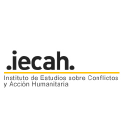MONITORING AND EVALUATION
MONITORING
By signing the Specific Grant Agreement, the Partner agrees to carry out the Action acting on its own responsibility and in accordance with the terms and conditions laid down in the Framework Partnership Agreement, including its Annexes. Moreover, the Partner is and remains fully responsible for all activities carried out by its Implementing Partners and shall ensure and guarantee an effective management and control of the whole Action. That's why monitoring has to be considered as a key activity in the action life cycle.
MONITORING BY THE PARTNERS
Monitoring includes the collection and analysis about the progress of a project and is primarily about comparing what was originally planned whit what actually happens. Furthermore it is an important tool for improving the project efficiency and effectiveness in order to achieve a relevant impact and final project sustainability
Monitor means collect the data of the Action systematically and regularly. This collection should be focused on different aspects such as:
-
physical progress of the activities (activities undertaken by the Partner and by its Implementing Partners and results delivered);
-
human resources (possible conflicts);
-
quality of process (e.g. stakeholder participation);
-
financial progress;
-
possible risks;
-
response by beneficiaries about the activities (i.e. use of services);
-
reasons for any adverse response by beneficiaries and any actions to be taken.
A good monitoring activity should provide clear information on the progress of activities and promptly identify challenges and possible areas for improvement.
The Logframe is an essential tool for developing a feasible monitoring plan and constitutes an important tool for the evaluation of the project’s effectiveness and impact at the end of the implementation period.
The partners will report back to ECHO in case of discovering circumstances likely to hamper of delay the implementation of the Action. In case the monitoring highlighted corrupt, fraudulent, collusive or coercive practice or breach of the Specific Grant Agreement, the partners will contact the Desk or at ECHO-LEGAL-AFFAIRS@ec.europa.eu
MONITORING BY ECHO
ECHO may at any time monitor the Action. The purpose of the monitoring is to observe the progresses made in the Action and the degree of achievements of the results and the specific objective. As a general rule, ECHO will conduct at least one monitoring visit for each funded Action. In most cases, the monitoring will be carried out by ECHO staff in the field. In some cases, it can be done by ECHO staff coming from Brussels.
Monitoring missions have different goals:
-
To verify whether the Action is proceeding according to the logframe and the workplan,
-
To detect possible problems,
-
To verify whether a readjustment of the initial project is needed;
-
To meet and listen to beneficiaries
The partner shall make available all information necessary to allow the monitoring of the Action and give the rights of access.
At the end of the monitoring visit the TA should have a meeting with the partner (either in the field or capital level) in order to present his/her findings. ECHO Brussels may also send feedback to the partners based on the conclusions of the TA.
If concrete steps have to be taken to improve the implementation of the Action the TA will inform the desk who will inform the partner on the steps/actions that ECHO expects to be taken.
If important problems, constraints and difficulties (e.g. important delays, insufficient quality, stakeholders' dissatisfaction, diversion of the Action from the agreed purpose, etc.) have been identified during the visit, the TA will inform the desk who will take the necessary actions, i.e. meeting with partner, amendment of the agreement and/or any other step deemed necessary.
MONITORING AND THE SINGLE FORM
The monitoring mechanism used by the Partner during the implementation of the Action should be described in the section 8 of the Single Form
EVALUATION
Evaluations serve to capitalise the experiences and to learn from each intervention. Evaluations should not look only at the achievements of the result or the objectives but also at the way the Action was managed, and if results or objectives were not reached, the reasons for this.
EVALUATION BY THE PARTNER
As stated in the Article 22.2 of the General Conditions, the Partner shall endeavour to conduct an evaluation on the results of the Action.
Evaluations are usually carried out by independent external evaluators but internal staff members can also evaluate an Action as long as they take an objective approach. This would normally mean staff who that was not involved in the response.
Humanitarian evaluation should use a set of dimensions known as the DAC criteria:
The evaluation should be planned in advance and mentioned in section 8 of the Single Form.
Evaluations are considered as eligible expenses under certain conditions:
-
For an internal evaluation linked to the Action, the submission of the terms of reference is not a prerequisite. The internal evaluation should not necessarily be justified, as it is considered as a good project management practice. A copy of the evaluation report will have to be provided with the Final Report for the costs to be eligible.
The lessons learned from evaluations can be indicated in section 13 of the Single Form at Final Report stage and also in section 3 of the Single Form at proposal stage for evaluations carried out under previous actions.
EVALUATION BY THE COMMISSION
The Commission or any other person or organisation authorised by the Commission may at any time conduct an evaluation of the Action.
The Partner shall make available to the Commission, or any other organisation or person mandated by it, all the information necessary to allow for the completion of the evaluation exercise, and shall give the required rights of access.
Evaluations by the Commission are to be planned and completed in a collaborative manner.
Before the report is finalised, the Commission shall make a draft of its evaluation report available to the Partner for comments. The Final Reports of the evaluations carried out by ECHO are available on the ECHO website.
REFERENCE, DOCUMENTS & USEFUL LINKS
GENERAL CONDITIONS, ARTICLES 3.2 AND 22
EN
FR
FPA GUIDELINES, SECTION 9.8 AND 9.10
EN
FR
SINGLE FORM GUIDELINES, SECTION 8
EN





